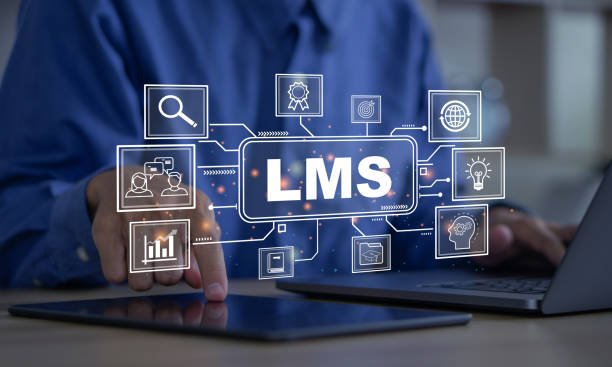Introduction:
A Learning Management System (LMS) has become an integral tool in the modern educational and corporate landscape. Whether it’s used by schools, universities, or businesses, an LMS streamlines the learning process by delivering training, tracking progress, and enabling efficient communication. This article explores the key features, benefits, and applications of LMS platforms, showcasing how they revolutionize the way we learn and train.
What is a Learning Management System?
A Learning Management System is a software application designed to create, manage, and deliver educational content. It facilitates online learning by providing a centralized platform where instructors can upload materials, assign tasks, and monitor performance. Learners, on the other hand, can access resources, complete assessments, and track their progress—all from one convenient interface.
Key Features of a Learning Management System
- Content Management
An LMS allows instructors to upload and organize a variety of content types, including videos, documents, quizzes, and multimedia presentations. This versatility ensures an engaging learning experience for users. - Assessment Tools
Built-in assessment features such as quizzes, assignments, and exams enable instructors to evaluate learner performance effectively. Automated grading further simplifies the process. - Progress Tracking and Reporting
LMS platforms provide detailed analytics and reports, helping instructors and administrators identify areas of improvement and tailor the learning experience accordingly. - Collaboration and Communication
Many systems include tools for discussion forums, messaging, and virtual classrooms, fostering interaction between learners and instructors. - Mobile Accessibility
With mobile-friendly interfaces, learners can access content anytime and anywhere, making education more flexible and accessible.
Benefits of Using a Learning Management System
- Enhanced Efficiency
LMS platforms automate administrative tasks such as enrollment, grading, and feedback. This frees up time for instructors to focus on developing high-quality content. - Cost-Effectiveness
Organizations and institutions save on costs related to physical classrooms, printed materials, and travel by adopting an LMS. - Personalized Learning
Many systems support adaptive learning, tailoring the content to the needs and pace of individual learners. This boosts engagement and retention rates. - Scalability
LMS platforms can cater to a small group of learners or scale up to accommodate thousands, making them ideal for growing organizations. - Eco-Friendly
Through the reduction of printed materials and commuting, LMS helps to make the world a greener place.
Applications of Learning Management Systems
- Educational Institutions
Schools and universities use LMS platforms for remote learning, blended courses, and even supplementary resources for traditional classes. - Corporate Training
Businesses rely on LMS for onboarding, skill development, compliance training, and performance reviews. This ensures that employees remain up-to-date with industry standards. - Non-Profit Organizations
Non-profits leverage LMS to train volunteers, spread awareness, and educate communities on various initiatives.
The Future of Learning Management Systems
Technology development is still influencing the LMS environment. With advancements in artificial intelligence and virtual reality, future systems are likely to provide even more immersive and interactive experiences. Features like AI-driven insights and VR-enabled simulations will make learning more engaging and effective.
Read More Artical For Click Here
conclusion
In conclusion, a Learning Management System is a transformative tool for delivering education and training. By offering flexibility, efficiency, and scalability, LMS platforms are paving the way for a brighter, more accessible future in learning and development. Whether you’re an educator, a business leader, or a learner, adopting an LMS can unlock endless possibilities.
Abdul Ghani – CEO at Sara Learning Global
Abdul Ghani is a dynamic leader transforming the way businesses approach learning and development. As CEO of Sara Learning Global, he combines vision with innovation to deliver impactful solutions. Beyond leading his team, Abdul shares his expertise through thought-provoking blogs, inspiring organisations to embrace modern, effective learning strategies.



